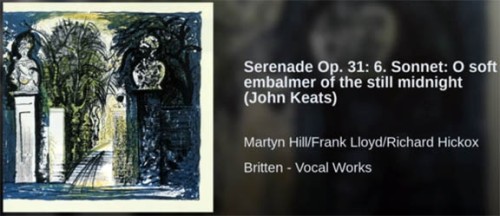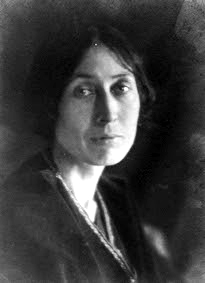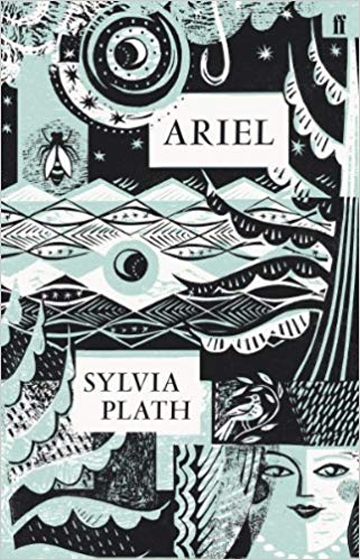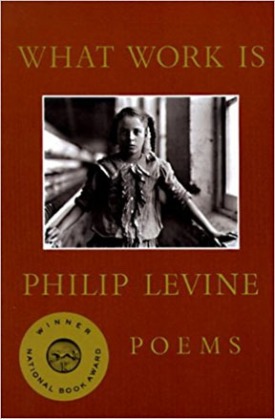Monthly Archives: January 2019
Words
Off from the center like horses.
Over the rock
Encounter them on the road—-
Govern a life.
Filed under Poem
Poetry pharmacy set to open in Shropshire
The Emergency Poet, Deborah Alma, plans to dispense literary first aid from a shop in Bishop’s Castle
Alison Flood
 Following in the hallowed footsteps of Milton, who wrote in 1671 that “apt words have power to swage / The tumours of a troubled mind / And are as balm to festered wounds”, the poet Deborah Alma is preparing to open the UK’s first poetry pharmacy. Here, instead of sleeping pills and multivitamins, customers will be offered prescriptions of Derek Walcott and Elizabeth Bishop.
Following in the hallowed footsteps of Milton, who wrote in 1671 that “apt words have power to swage / The tumours of a troubled mind / And are as balm to festered wounds”, the poet Deborah Alma is preparing to open the UK’s first poetry pharmacy. Here, instead of sleeping pills and multivitamins, customers will be offered prescriptions of Derek Walcott and Elizabeth Bishop.
.
Alma, who as the “Emergency Poet” has prescribed poems as cures from the back of a 1970s ambulance for the last six years, is now setting up a permanent outlet in a shop at Bishop’s Castle in Shropshire. An old Edwardian ironmonger’s, it still has the original fixtures and fittings, and, together with her partner, the TS Eliot prize-shortlisted poet James Sheard, Alma is preparing to turn it into a haven “to help ease a variety of maladies with the soothing therapy of Poetry”.
.
Dressed in a white coat and stethoscope, Alma says she was invited to appear as the Emergency Poet at “schools, hospitals and festivals all over the place, but I’m a middle-aged woman and I’m getting a bit old for driving around”. She first noticed the shop on Bishop’s Castle High Street two years ago. “It’s got all the original shelves, drawers, the oak counter; it’s beautiful and I thought: ‘Wow, that would make a fantastic poetry pharmacy!’ Two years later, we’ve done it and got a mortgage,” she says.
.
Read the complete article
Filed under News
From “As I Walked Out One Evening”
By W. H. Auden
 “In the burrows of the Nightmare
“In the burrows of the Nightmare
Where Justice naked is,
Time watches from the shadow
And coughs when you would kiss.
.
“In headaches and in worry
Vaguely life leaks away,
And Time will have his fancy
Tomorrow or today.
.
“Into many a green valley
Drifts the appalling snow;
Time breaks the threaded dances
And the diver’s brilliant bow.
.
“O plunge your hands in water,
Plunge them in up to the wrist;
Stare, stare in the basin
And wonder what you’ve missed.
.
“The glacier knocks in the cupboard,
The desert sighs in the bed,
And the crack in the teacup opens
A lane to the land of the dead.
.
Read the complete poem
Filed under Poem
Wielded by a Wizard
Seamus Perry
Selected Poems and Prose by Percy Bysshe Shelley, edited by Jack Donovan and Cian Duffy.
 Quite a few of Shelley’s contemporaries came to the view that he wasn’t all there – the inhabitants of Marlow, for example, who were treated to the recurrent spectacle of a disgraceful young radical poet returning distractedly to his cottage after long scrambles in the woods. ‘He was the most interesting figure I ever saw,’ a child witness recalled later in life, still much struck. ‘His steps were often hurried, and sometimes he was rather fantastically arrayed … on his head would be a wreath of what in Marlow we call “old man’s beard” and wild flowers intermixed; at these times he seemed quite absorbed, and he dashed along regardless of all he met or passed.’ Not all the neighbours thought so admiringly of him, needless to say; and his poetry too would find detractors as well as admirers, dividing opinion over the next two hundred years with comical extremity. William Hazlitt, although notionally on the same side in the big political questions of the day, was pugnaciously uncharmed by the cast of mind that he discerned in Shelley’s dashing about, and anticipated a whole school of criticism: ‘There is no caput mortuum of worn-out thread-bare experience to serve as a ballast to his mind; it is all volatile intellectual salt of tartar, that refuses to combine its evanescent, inflammable essence with any thing solid or any thing lasting.’ But others found this odd sense of irreality more winning, or at least arresting. Getting to know him for the first time, his future sister-in-law reported delightedly that Shelley behaved ‘just as if he were Adam in Paradise before his fall’, and she was not alone in finding in him an innocence of the world that lay about him.
Quite a few of Shelley’s contemporaries came to the view that he wasn’t all there – the inhabitants of Marlow, for example, who were treated to the recurrent spectacle of a disgraceful young radical poet returning distractedly to his cottage after long scrambles in the woods. ‘He was the most interesting figure I ever saw,’ a child witness recalled later in life, still much struck. ‘His steps were often hurried, and sometimes he was rather fantastically arrayed … on his head would be a wreath of what in Marlow we call “old man’s beard” and wild flowers intermixed; at these times he seemed quite absorbed, and he dashed along regardless of all he met or passed.’ Not all the neighbours thought so admiringly of him, needless to say; and his poetry too would find detractors as well as admirers, dividing opinion over the next two hundred years with comical extremity. William Hazlitt, although notionally on the same side in the big political questions of the day, was pugnaciously uncharmed by the cast of mind that he discerned in Shelley’s dashing about, and anticipated a whole school of criticism: ‘There is no caput mortuum of worn-out thread-bare experience to serve as a ballast to his mind; it is all volatile intellectual salt of tartar, that refuses to combine its evanescent, inflammable essence with any thing solid or any thing lasting.’ But others found this odd sense of irreality more winning, or at least arresting. Getting to know him for the first time, his future sister-in-law reported delightedly that Shelley behaved ‘just as if he were Adam in Paradise before his fall’, and she was not alone in finding in him an innocence of the world that lay about him.
.
Read the complete review
One Hundred Poems That Capture the Meaning of Joy
Christian Wiman’s new anthology brings together an admirable range of meditations on an emotion whose place in the world today can seem uncertain.
ADRIANNA SMITH
 In his new anthology, Joy: 100 Poems, the writer Christian Wiman takes readers through the ostensible ordinariness of life and reveals the extraordinary. “We ate, and talked, and went to bed, / And slept. It was a miracle,” Donald Hall writes in “Summer Kitchen.” Through a luminous array of poetry and prose, Wiman captures joy in contemporary contexts. These works span from the 20th century to the present day, and as a result, the real, the specific, and the familiar shine through: “She’s slicing ripe white peaches / into the Tony the Tiger bowl,” Sarah Lindsay describes in “Small Moth.”
In his new anthology, Joy: 100 Poems, the writer Christian Wiman takes readers through the ostensible ordinariness of life and reveals the extraordinary. “We ate, and talked, and went to bed, / And slept. It was a miracle,” Donald Hall writes in “Summer Kitchen.” Through a luminous array of poetry and prose, Wiman captures joy in contemporary contexts. These works span from the 20th century to the present day, and as a result, the real, the specific, and the familiar shine through: “She’s slicing ripe white peaches / into the Tony the Tiger bowl,” Sarah Lindsay describes in “Small Moth.”
.
Wiman’s anthology is a reminder that if the news can bring people closer to the suffering of others, literature can bring people closer to the intensities of those experiences. This collection is a study of one of these intensities, namely joy, which Wiman knows is a close bedfellow with sorrow. As he explains in his deeply informed and beautiful introduction, the word joy alone can make writers and readers apprehensive: How can one speak of that feeling at a moment when it seems that anger, confusion, and pain are everywhere?
Read the complete article
Filed under Reviews
To Sleep
John Keats
 O soft embalmer of the still midnight,
O soft embalmer of the still midnight,
Shutting, with careful fingers and benign,
Our gloom-pleas’d eyes, embower’d from the light,
Enshaded in forgetfulness divine:
O soothest Sleep! if so it please thee, close
In midst of this thine hymn my willing eyes,
Or wait the ‘Amen,’ ere thy poppy throws
Around my bed its lulling charities.
Then save me, or the passed day will shine
Upon my pillow, breeding many woes,—
Save me from curious Conscience, that still lords
Its strength for darkness, burrowing like a mole;
Turn the key deftly in the oiled wards,
And seal the hushed Casket of my Soul.
.
Listen to Benjamin Britten’s Serenade Op. 31: 6, inspired by this poem
Filed under Poem
When song lyrics become literature
BY JUDE ROGERS
 What happens to a song lyric when it lands on the page? It becomes oddly silent but also not silent. Ghosts of its usual rhythms lie at the beginnings and ends of its lines. The blank space around it seems weirdly disconcerting, like white noise.
What happens to a song lyric when it lands on the page? It becomes oddly silent but also not silent. Ghosts of its usual rhythms lie at the beginnings and ends of its lines. The blank space around it seems weirdly disconcerting, like white noise.
.
This happens, of course, because a song lyric isn’t poetry. A poem exists between pages of paper, bound by its own internal logic. A lyric arrives from the wider world, laden with decades of meaning and remembered melody, and is unmoored violently and suddenly from its bearings. It is also presented for the reader’s eye – which implies an act of choice – not the listener’s ear. The ear could have heard an unforgettable lyric quite by chance on an otherwise ordinary morning. This serendipity disappears in print, although we still hunt for magic within these new leaves.
Read the complete article
Filed under Study
The Dream
by Lola Ridge
 I have a dream
I have a dream
to fill the golden sheath
of a remembered day….
(Air
heavy and massed and blue
as the vapor of opium…
domes
fired in sulphurous mist…
sea
quiescent as a gray seal…
and the emerging sun
spurting up gold
over Sydney, smoke-pale, rising out of the bay….)
But the day is an up-turned cup
and its sun a junk of red iron
guttering in sluggish-green water –
where shall I pour my dream?
Filed under Poem

 Axes
Axes

 The late
The late